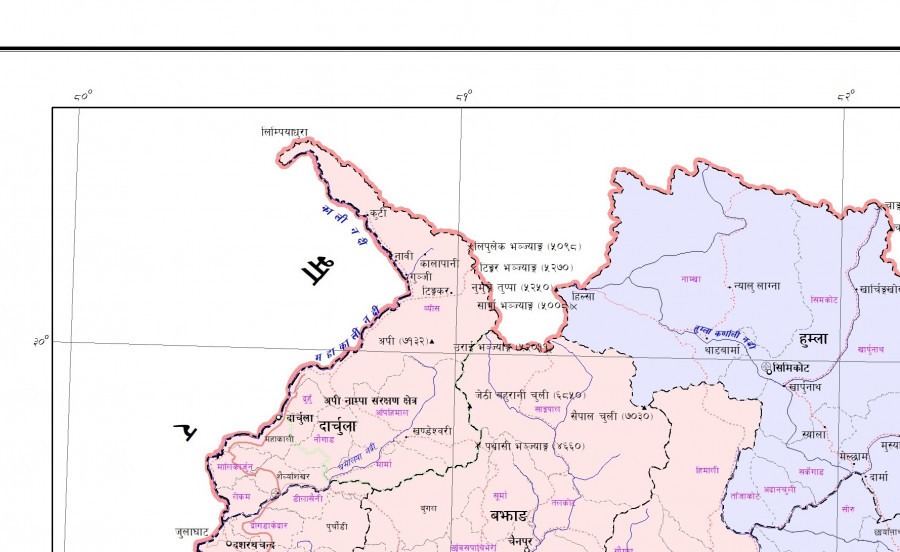National
India says boundary talks with Nepal through existing set-ups
Statement comes amid uproar in Nepal over Modi’s remarks on Lipulekh.
Post Report
The government of India has said that outstanding boundary issues with Nepal will be settled through the established mechanisms and channels.
The Indian response on Saturday comes amid an outcry in Nepal against Indian Prime Minister Narendra Modi’s recent statement on the expansion of a road via Lipulekh, a territory Nepal has claimed as its own.
Almost all political parties in Nepal, including Prime Minister Sher Bahadur Deuba’s own Nepali Congress, have been demanding that the government speak up on Modi’s statement and make its position clear on Lipulekh.
“The Government of India’s position on the India-Nepal boundary is well known, consistent and unambiguous,” the Indian Embassy in Kathmandu said in a statement on Saturday. “It has been communicated to the Government of Nepal.”
The statement comes amid preparations by the Nepal government on making its position on Modi’s remarks. High-level government officials on Friday told the Post that they were working whether to send a letter directly to the Indian government or issue just a press note.
While addressing an election rally, Modi on December 30 announced that his government had extended a road to Lipulekh and that there were more plans to extend it further. The Indian government is building a road via Lipulekh to Kailash Mansarovar in the Tibetan Autonomous Region of China. Indian Defence Minister Rajnath Singh had inagurated the road in the first week of May 2020, creating quite an uproar in Nepal. The Nepal government then on May 20, 2020 unveiled a new map incorporating Kalapani, Limpiyadhura and Lipulekh within the Nepali territory. The new map was endorsed by Parliament unanimously through a constitutional amendment.
India had taken umbrage at Nepal’s move, calling the publication of the new map “cartographic assertions.” Nepal-India relations then hit a rock-bottom. Bilateral ties came back on track only at the end of last year.
But Modi’s remarks on Lipulekh once again created a commotion in Nepal.
The main opposition CPN-UML criticised the Deuba administration for failing to respond to Modi’s claim on Lipulekh. Even Deuba’s coalition partners—Communist Party of Nepal (Maoist Centre) and the CPN (Unified Socialist)—called on the government to make a position.
On Friday, the ruling Nepali Congress issued a statement.
Gagan Thapa and Bishwa Prakash Sharma, the two general secretaries of the Congress, jointly met with Prime Minister Deuba and urged him to send a diplomatic note to India protesting against Modi's statement. On Friday evening, both Thapa and Sharma issued a joint statement saying that Kalapani, Lipulekh and Limpiyadhura are integral parts of Nepal and that the Nepali Congress is clear about it.
“India should return its army from Kalapani. The construction of the road is a serious issue and objectionable. This should be stopped immediately,” the statement added.
The Indian embassy has said the inter-governmental mechanisms and channels are appropriate for communication.
“It is our view that the established inter-governmental mechanisms and channels are most appropriate for communication and dialogue,” said the embassy. “Mutually agreed boundary issues that are outstanding can always be addressed in the spirit of our close and friendly bilateral relations.”




 8.67°C Kathmandu
8.67°C Kathmandu














